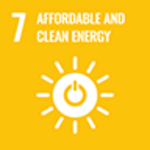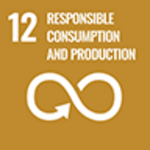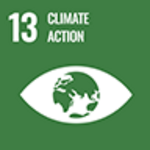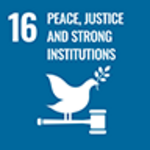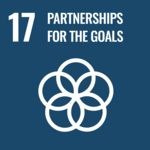
Professor Satoru Kato
Affiliation: Institute for the Advancement of Sustainability
Area of expertise: Environmental policy
Research Keywords: SDGs, Sustainability Studies, Advanced Liberal Arts Education, Environmental Studies, Product Life Cycle Studies
Final academic background: Graduate School of Engineering, University of Tokyo
HP address: Institute for the Advancement of Sustainability
*Released on August 21, 2024
What is the relationship between your research activities and sustainability?
In 1988, when I entered university, on April 20th, American James Hansen testified before the US Congress, stating that the cause of the extreme heat in the US was global warming, based on his own research, and the Hansen Report was published. Hearing this news, I studied engineering to solve local environmental problems, such as water treatment, waste treatment, exhaust gas treatment, and regional planning, in the Department of Environmental Engineering. During my time at university, global environmental issues became an international topic, and in June 1992, when I was in my fourth year at university, the Earth Summit (United Nations Conference on Environment and Development) was held in Rio de Janeiro, Brazil. The slogan "Think Globally, Act Locally" became frequently used, and I was interested in how to connect the global environmental issues, which had become a social topic, with the local environmental issues that I was dealing with at university.
When I entered the doctoral program at the University of Tokyo in 1994, the AGS (Alliance of Global Sustainability) had just started, and exchanges on sustainability had begun between the University of Tokyo, MIT (Massachusetts Institute of Technology), and ETH (ETH Zurich). Since I was still a doctoral student, I only attended public events, but I saw with my own eyes that cutting-edge researchers around the world were conscious of sustainability. However, in Japan around 1994, waste problems were the top issue, and there was discussion about how to realize the term 3R and how to reflect it in policy. In 1991, the Law on the Promotion of the Use of Recyclable Resources (Recyclable Resources Promotion Law) was enacted, and the first urgent issue was the formulation of laws on beverage containers such as cans, bottles, and PET bottles, and packaging materials, which had become an excessive packaging problem.
At that time, while still a student, I was given the position of visiting researcher at a think tank in Tokyo, where I was involved in the planning of recycling policies, and even after obtaining my degree at the University of Tokyo, I continued to engage in research into waste reduction, including maintenance engineering, inverse manufacturing, and life cycle engineering. In December 1999, the first Eco-Products Exhibition was held at Tokyo Big Sight, and I vividly remember taking the Yurikamome line to Odaiba to see it.
Later, as the business of independent think tanks became more difficult with changes in society, I got a job working on a project at Osaka University, where I provided education on environmental risks. I created new curricula and syllabuses, and put together skill standards to be acquired. This was a time when open badges and micro-credentials were not yet common, but I created an education system that clarified the skills to be acquired in each lecture and taught comprehensive skills. I also took on the pioneering initiative of having working adults and graduate students study together, and the project was highly praised.
 Educating students about the SDGs not only at our university, but also at elementary, junior high, and high school students, working adults, and business people.
Educating students about the SDGs not only at our university, but also at elementary, junior high, and high school students, working adults, and business people.What are you currently working on?
I want to be a scientist and a researcher, so I don't want to give up my inquisitiveness and logical thinking. I think about a lot of things freely, but I will thoroughly research anything that interests me. I want to contribute to building a society that improves the environment even a little, increases the possibility of sustainability, and rewards people's activities and efforts.
While there are some genius researchers who create one from zero, many researchers are engaged in developing existing research, conducting proof-of-concept experiments, and researching how to turn one into ten.
For a real researcher, the final goal is to write a research paper, but I think that my goal is to implement it in society, so in that sense I am not qualified to be a researcher. However, I would like to contribute to improving the sustainability of society as a whole using the methods of scientists and researchers. Currently, I belong to the Hokkaido University Sustainability Promotion Organization, which is the university's management organization, and I educate not only our students but also elementary, junior high, and high school students, working adults, and business people about the SDGs. In addition, I mainly disseminate information about SDGs activities for the entire university, plan and manage SDGs activities that can be carried out by university faculty and staff, and provide guidance on joint research with companies.
In the framework of the Ministry of the Environment, the four pillars in the environmental field are decarbonization, zero waste, coexistence with nature, and safety and security. In the framework of the SDGs, the four pillars are environment, society, economy, and partnership. We are willing to do anything that fits these criteria.
Specifically, I give on-demand lectures on the SDGs to undergraduate and graduate students as part of their required courses, teach classes on the SDGs in English, collaborate with the Rumoi Education Bureau on high school-university collaboration activities, and help with university FD and SD activities. In addition, I am currently conducting joint research with companies on nature positivity and research on renewable energy systems. In addition, I am planning and managing the issuance of university bonds, the creation of new interdisciplinary education programs, and university collaboration education activities with Hosei University and Kansai University. However, my main job is to act as a coordinator for disseminating information about Hokkaido University's SDGs and as a liaison office, so I spend most of my time participating in and planning events, and handling interviews from the media.
 In a high school-university collaboration with the Rumoi Board of Education, we explained carbon neutrality, circular economy, and nature restoration to high school students.
In a high school-university collaboration with the Rumoi Board of Education, we explained carbon neutrality, circular economy, and nature restoration to high school students.
What's next for you?
The SDGs are said to be goals until 2030, and some people are worried about what will happen after that, but I have been working on sustainability-related issues since 1988. In my classes, I talk about how the world has been working on environmental issues ever since the United Nations Conference on the Human Environment held in Stockholm in 1972. In terms of well-being, well-being is defined in the WHO (World Health Organization) Charter adopted in 1946. Therefore, the SDGs as a concept will definitely continue after 2030.
The iPhone was released in 2007. It has not yet been 20 years, but its penetration rate is about 90% in Japan (2023) and about 70% worldwide (2023). Chat GPT, a generative AI, was released in the fall of 2022 and has been in use for less than two years, but it is being used in companies and government services, and generative AI technology is being introduced in a wide range of services such as the search engine Bing and the web browser Edge. The turning point at which AI evolves and surpasses human intelligence is called the singularity, which was previously thought to occur in 2045, but some researchers believe it will occur around 2030.
It is said that information technology such as AI will provide equal services to all of humanity, but existing disparities will be greatly expanded depending on the spread of information infrastructure and the state of basic education to use AI. The MDGs were a dichotomy between developing and developed countries, but the SDGs have become universal, but the disparity between developing and developed countries has not disappeared or narrowed, and it remains an unresolved problem in society, forming a fragile social structure.
The other is culture. Respect for indigenous cultures is now being dug up all over the world. Exposure to different cultures leads to a re-evaluation of one's own culture. The "Universal Declaration on Cultural Diversity" adopted by UNESCO in 2001 states that cultural diversity is the common heritage of humanity, and that imagination blossoms through contact with multiple cultures. I hope to be able to make some kind of contribution to building a society where diverse cultures are respected and freedom of activity and challenge is guaranteed.
 Green transformation (also promoted by GX) that utilizes the potential of renewable energy in Hokkaido
Green transformation (also promoted by GX) that utilizes the potential of renewable energy in Hokkaido Press conference announcing the establishment of the Renewable Energy Research and Education Center (REREC)
Press conference announcing the establishment of the Renewable Energy Research and Education Center (REREC)
















